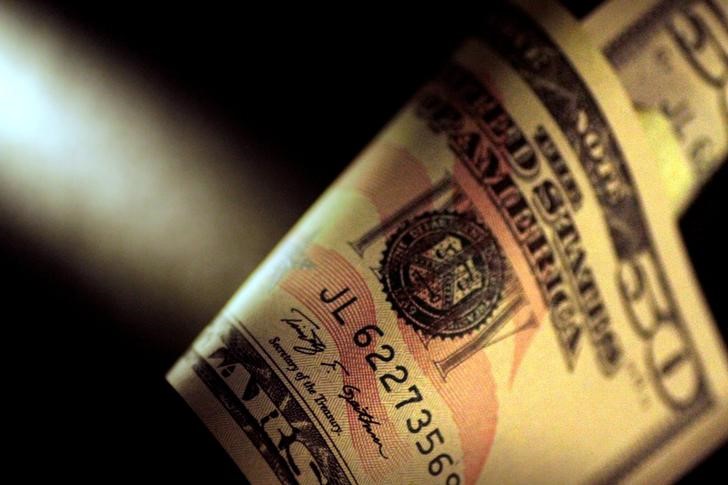By Peter Nurse
Investing.com - The U.S. dollar edged lower in early European trade Friday, but remained near a 20-year high with Federal Reserve Chair Jerome Powell largely cementing the likelihood of further hefty interest rate rises to combat stubbornly high U.S. inflation.
At 3:15 AM ET (0715 GMT), the Dollar Index, which tracks the greenback against a basket of six other currencies, fell 0.2% to 104.645, just off its overnight two-decade peak of 104.92.
The dollar has been in demand for much of the year, with the Federal Reserve seen as one of the most aggressive of the world’s central banks in combating soaring inflation.
The U.S. central bank raised its benchmark overnight interest rate by 50 basis points last week, the largest hike in 22 years, and is expected to continue to aggressively tighten monetary policy in the months ahead.
“If the economy performs about as expected … it would be appropriate for there to be additional 50-basis point increases at the next two meetings,” said Powell in an interview with the Marketplace public radio program on Thursday.
However, he added that the Fed wasn’t “actively considering” a larger 75 basis-point increase, comments that have prompted some traders to dial back their long dollar positions.
USD/JPY rose 0.2% to 128.58, climbing again after falling to a two-week low of 127.50 overnight as the yen received some support as the benchmark U.S. 10-year yield continued to decline from Monday's high of 3.203%.
EUR/USD rose 0.2% to 1.0398, still not far off its 2017 low of 1.0340, a break of which would place the pair at its lowest in nearly 20 years.
This weakness occurs despite ECB President Christine Lagarde on Thursday joining the chorus of policymakers calling for the central bank to start lifting interest rates, amid expectations that it will take action in July.
“The EUR has blatantly struggled to draw any tangible benefits from the increasingly hawkish tone among ECB policymakers,” said analysts at ING, in a note, “which in our view boils down to the already quite aggressive tightening expectations (80-85 bp fully priced in by year-end) and lingering uncertainty around whether the ECB will be able to deliver many more hikes afterwards given the deteriorating economic outlook in the euro area.”
Additionally, GBP/USD rose 0.1% to 1.2209, rebounding slightly after dropping to a near 2-year low during the previous session after data showed the British economy grew less than expected in the first quarter.
USD/CNY rose 0.2% to 6.7989, with the yuan under pressure after Beijing recorded a few more COVID-19 cases, prompting officials to deny speculation that the capital city will be locked down.
